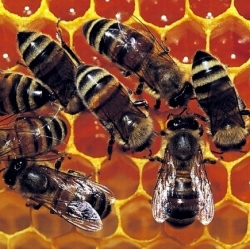
Winged insects including bees, moths and butterflies are suffering this year following the UK’s late, cold spring, a National Trust report has revealed. The charity warns the drop in numbers of winged insects could lead to food shortages for birds and bats.
The six-month review assessed the state of plants and animals in England, Wales and Northern Ireland and came up with a "winners and losers" list. Snowdrops, bluebells and daffodils are all on the winners’ list
Among the "losers", butterflies have been "very scarce" this year, due to a combination of an unsettled spring and the last year’s extremely wet summer. Likewise, moth numbers have been driven down by cool, wet or windy nights over the past few months.
Mason bees and mining bees also struggled to survive in poor weather in May, which may have a knock-on effect for plant pollination.
"Insect populations have been really very low. Then when they have got going, they’ve been hit by a spell of cool, windy weather… so our environment is just not bouncing with butterflies or anything else," said Mathew Oates, a naturalist at the National Trust, who worked on the report.
He acknowledged insects follow a "boom and bust pattern", but explained: "The concern is when you have a sequence of poor summers, then a lot of small [insect] populations are lost… and they [effectively] retreat back to the nature reserves."
Birds on the "losers" list include martins, swifts, swallows and warblers, all of which rely on airborne insects to feed and may struggle to survive in the coming months.
